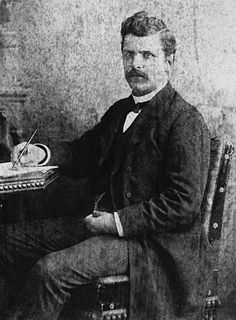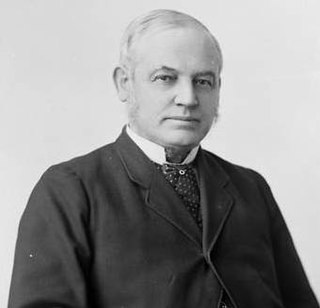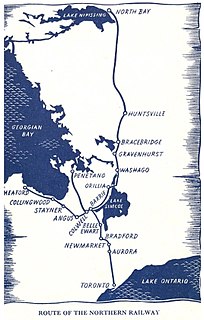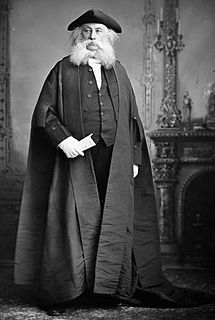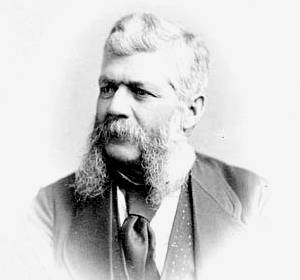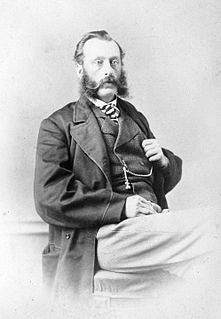
Source: Library and Archives Canada
Elijah Leonard (September 10, 1814 – May 14, 1891) was an Ontario businessman and political figure. He was a Liberal member of the Senate of Canada from 1867 to 1891.
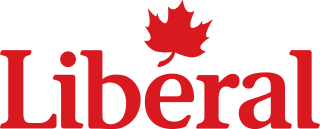
The Liberal Party of Canada is the oldest and longest-serving governing political party in Canada. The Liberals form the current government, elected in 2015. The party has dominated federal politics for much of Canada's history, holding power for almost 69 years in the 20th century—more than any other party in a developed country—and as a result, it is sometimes referred to as Canada's "natural governing party".

The Senate of Canada is the upper house of the Parliament of Canada, along with the House of Commons and the Monarch. The Senate is modelled after the British House of Lords and consists of 105 members appointed by the Governor General on the advice of the Prime Minister. Seats are assigned on a regional basis: four regions—defined as Ontario, Quebec, the Maritime provinces, and the Western provinces—each receive 24 seats, with the remaining portions of the country—Newfoundland and Labrador receiving 6 seats and the three northern territories each assigned the remaining one seat. Senators may serve until they reach the age of 75.
He was born on a farm near Syracuse, New York in 1814, the son of Elijah Leonard. In 1830, he moved with his family to Normandale in Upper Canada, where his father was working at a foundry owned by Joseph Van Norman. In 1834, with his father and a partner, he established a foundry at St. Thomas. The partner was bought out and his father retired, leaving him in charge of the business.
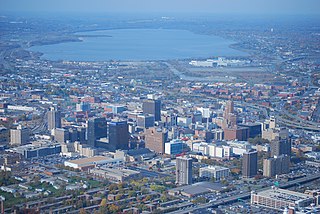
Syracuse is a city in and the county seat of Onondaga County, New York, in the United States. It is the fifth-most populous city in the state of New York following New York City, Buffalo, Rochester, and Yonkers.
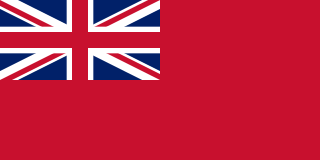
The Province of Upper Canada was a part of British Canada established in 1791 by the Kingdom of Great Britain, to govern the central third of the lands in British North America, formerly part of the Province of Quebec since 1763. Upper Canada included all of modern-day Southern Ontario and all those areas of Northern Ontario in the Pays d'en Haut which had formed part of New France, essentially the watersheds of the Ottawa River or Lakes Huron and Superior, excluding any lands within the watershed of Hudson Bay. The "upper" prefix in the name reflects its geographic position along the Great Lakes, mostly above the headwaters of the Saint Lawrence River, contrasted with Lower Canada to the northeast.

A foundry is a factory that produces metal castings. Metals are cast into shapes by melting them into a liquid, pouring the metal into a mold, and removing the mold material after the metal has solidified as it cools. The most common metals processed are aluminium and cast iron. However, other metals, such as bronze, brass, steel, magnesium, and zinc, are also used to produce castings in foundries. In this process, parts of desired shapes and sizes can be formed.
In 1840, Leonard set up a machine shop and foundry at London, Ontario, on York Street where he began to manufacture agricultural equipment and then cars, track and other equipment for railways. The company, now known as E. Leonard and Sons, went on to manufacture steam boilers and steam-powered equipment. In 1847, he married Emeline, the daughter of Elijah Cocker Woodman. He was elected to the London municipal council in 1854 and became mayor in 1857. In 1862, he was elected to the Legislative Council of the Province of Canada for Malahide division; Leonard was named to the Senate after Confederation. Besides his manufacturing interests, he also helped found the London and Lake Huron Railway, the London Savings Bank and the Huron and Erie Savings and Loan Society.
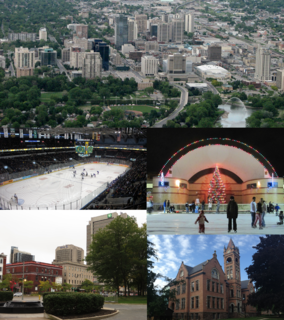
London is a city in Southwestern Ontario, Canada along the Quebec City–Windsor Corridor. The city had a population of 383,822 according to the 2016 Canadian census. London is at the confluence of the Thames River, approximately 200 km (120 mi) from both Toronto and Detroit; and about 230 km (140 mi) from Buffalo, New York. The city of London is a separated municipality, politically separate from Middlesex County, though it remains the county seat.
London City Council is the governing body of the city of London, Ontario, Canada.
The Legislative Council of the Province of Canada was the upper house for the Province of Canada, which consisted of the former provinces of Lower Canada, then known as Canada East and later the province of Quebec, and Upper Canada, then known as Canada West and later the province of Ontario. It was created by The Union Act of 1840.
Leonard died in London, Ontario in 1891.
After his death, his two sons continued to operate the company, which remained family-run until 1945.


